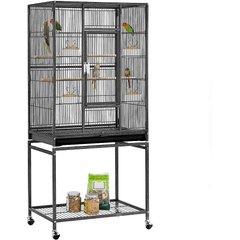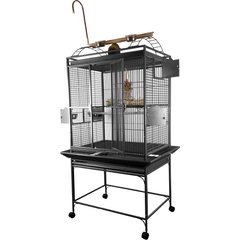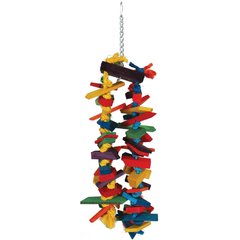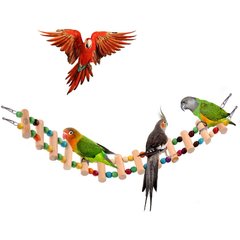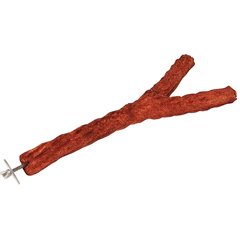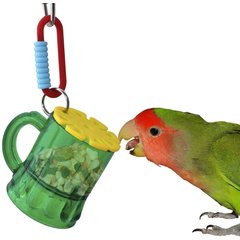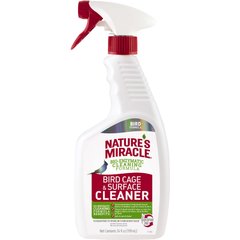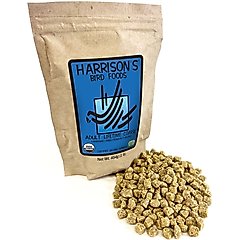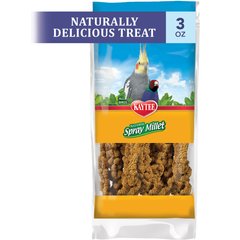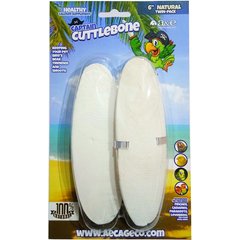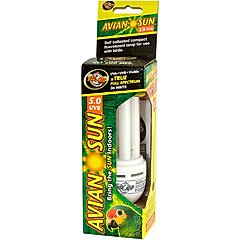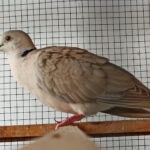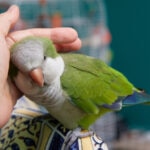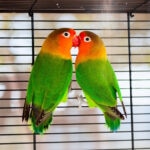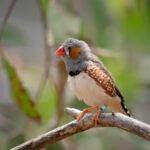Cockatiel Care Sheet
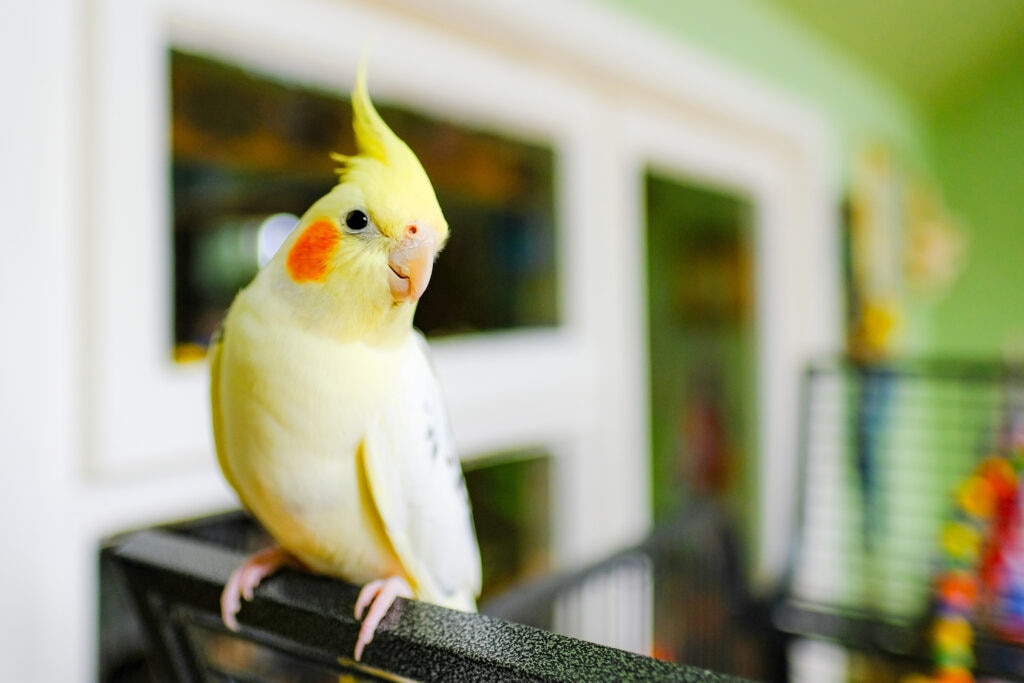
Photo by Nickbeer/iStock/Getty Images Plus
Cockatiels are affectionate and intelligent birds, and make great pets for even first-time pet parents. If you’re getting a cockatiel or thinking about getting one, ensure you have everything you need to care for them throughout their life.
Cockatiel Overview
- With proper care, cockatiels live an average of 25 years.
- Cockatiels have the ability to talk, but aren’t as vocal as other birds. Males are more vocal than females.
Fun Facts About Cockatiels
- Cockatiels are part of the parrot family and have similar features; their feet have two toes pointing forward and two backward.
- Cockatiels are native to Australia and related to the cockatoo.
Cockatiel Cage
A cockatiel cage should be spacious enough for your pet to move around comfortably. Look for a cage at least 30 inches wide by 30 inches tall and 24 inches deep, with ½–inch to 1-inch spacing between the bars.
Recommended Products
These dimensions are for one bird; if you keep multiple birds in the same habitat, size up accordingly. You can keep multiple cockatiels in the same cage, but not different species.
Your bird should have plenty of space to roam around without feeling cramped, and should have room to stretch and flap their wings.
It’s recommended that your cockatiel cage be the type where food and water bowls are accessible to you from outside of the cage, and with a pull-out tray for easy cleaning.
Add decor like bird perches, toys, and a stand. Make sure perches aren’t placed above the food and water bowls, as droppings could land there.
Recommended Products
Cockatiel Cleaning and Maintenance
Spot-clean your bird’s cage daily by removing discarded food and soiled materials. Wash and replenish the water and food bowls daily as well. Remove and replace any bedding and habitat liners as needed.
Thoroughly clean your bird’s habitat once a week. Use a bird habitat cleaner like Nature’s Miracle Bird Cage & Surface Cleaner Spray or a 3% bleach solution to spray the cage and accessories.
Recommended Product
Clean and rinse everything with water and make sure everything is dry before returning it to the cage.
Cockatiel Food
You can feed cockatiel bird food to your pet daily. High-quality pelleted food makes up 60%–70% of their diet. Use the feeding instructions from the manufacturer to determine how much to feed your bird at mealtime.
Recommended Products
Fruits and vegetables should make up about 30% of your bird’s diet. While most are fine for them to consume, avoid fruits with pits and seeds. Also, avoid onions and garlic.
Treats should make up no more than 10% of your bird’s diet. Feed them fortified seeds and millet occasionally, like Kaytee Natural Spray Millet Bird Treats. There’s no need to remove the hulls of seeds beforehand; cockatiels do this themselves.
Recommended Product
Cuttlebones are a calcium supplement that is vital to all egg-laying birds. If your bird lays eggs, make sure cuttlebones are always available.
Recommended Product
Separate bowls are necessary for dry food, fresh food, and water. Your bird should always have access to fresh, clean water.
If you keep more than one bird inside the cage, each cockatiel should have their own food and water bowls so they don’t fight. All food and water bowls should be washed daily.
Cockatiel Handling
Engaging interaction is a must for you and your bird. You can regularly hang out in front of your cockatiel’s cage so your bird recognizes you—this starts building trust.
Once your cockatiel seems comfortable, you can hold a finger out to encourage your bird to step on it. This may not happen right away, so don’t feel discouraged. If your bird feels threatened, they may hiss or bite at you.
Once your bird trusts you, they’ll increase their interactions with you and eventually step onto your finger. Then you can slowly work on petting them.
Cockatiels are very social and love to spend time with their humans. While daily handling is great for their socialization, yours might prefer being perched rather than held. Both are OK—each bird is unique.
Cockatiel Health
Give your bird natural light exposure by spending supervised time in an outdoor cage as temperatures permit. Never leave your bird unattended or in direct sunlight.
You can also supplement sun exposure with a UV light designed for bird cages, running 10–12 hours daily.
Recommended Product
Your cockatiel should see a vet annually for a routine checkup. When you get to your appointment, have pictures of your bird’s cage, supplies, and food to show the vet. The veterinarian may evaluate these as part of the exam.
Keep a watchful eye on your bird. Signs of a healthy cockatiel are:
- Clean nostrils and vent
- Clear, bright eyes
- Clean, intact feathers
- Intact beak
- Strong foot grip
- Full and equal range of motion of wings
- Consistent, regular droppings
Aside from a regular checkup, you might need to take your bird to the vet at other times. Call your vet if you notice:
- Loss of appetite
- Hiding or not vocalizing
- Rapid breathing
- Head tilting
- Holding a wing abnormally or refusing to use a foot or wing
- Lack of foot grip, falling off perch, or foot sores
- Itching or feather plucking
- Bleeding feathers or uneven feather growth
- Overgrown beak or beak fractures
- Runny or abnormally colored droppings
- Eye or nasal discharge
- Moist feathers around cloaca or cloaca discharge
A change in your bird’s behavior is a significant sign that something isn’t right. As a defense mechanism, cockatiels don’t immediately show obvious signs of illness. Reach out to your vet if you think something is wrong.
Cockatiel Supply Checklist
Before you bring home your new bird, make sure you have your new setup ready to go. You should have all your supplies, including:
- Appropriately sized habitat
- High-quality cockatiel food
- Treats, including millet spray and millet holder
- Cuttlebone and holder
- Habitat paper or litter
- Food and water bowls
- Perches
- Toys
- Bird bath
- Grooming supplies
- UV light
FAQs About Cockatiels
How long do cockatiels live?
With proper care, cockatiels can live up to 25 years.
Do cockatiels talk?
While cockatiels talk, they aren’t as vocal as other parrot species.
Do cockatiels make good pets?
Cockatiels make excellent pets, both for seasoned bird lovers and beginners.
Where do cockatiel birds come from?
Cockatiels are parrots that are native to Australia.
Do cockatiels lay eggs?
Yes, female cockatiels naturally lay eggs, even if there is no male cockatiel present.
Click here for a printable PDF version of this care sheet!
